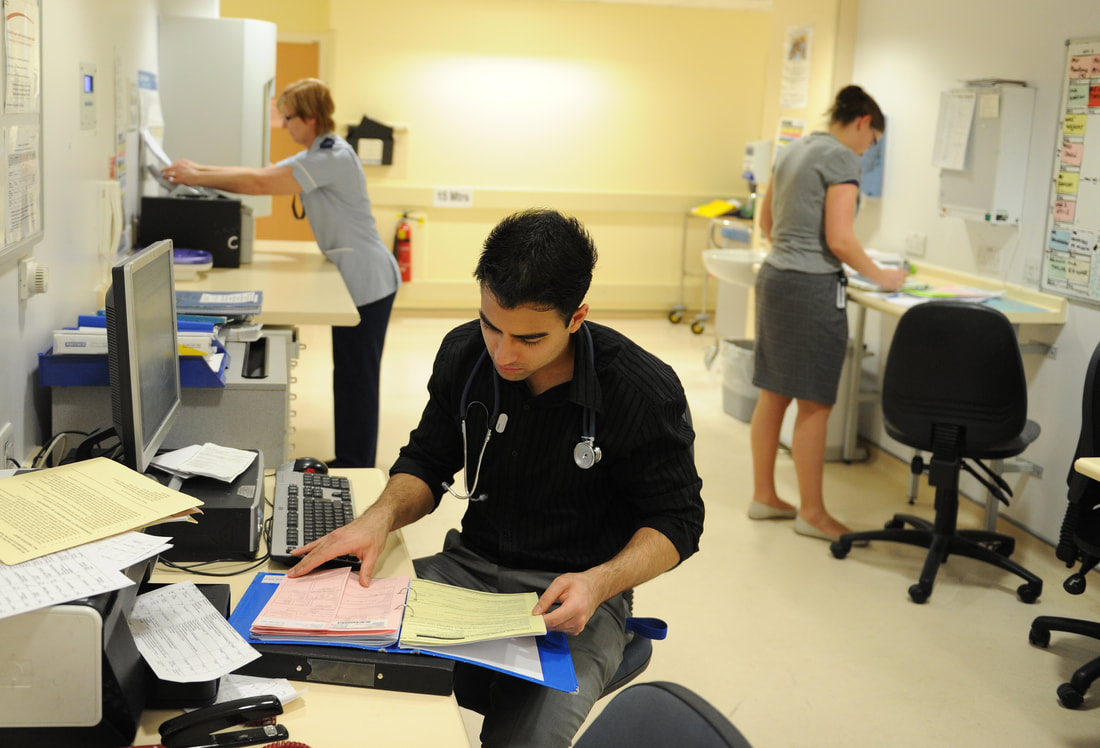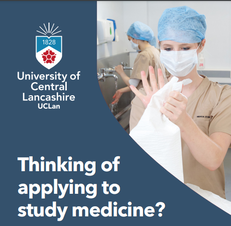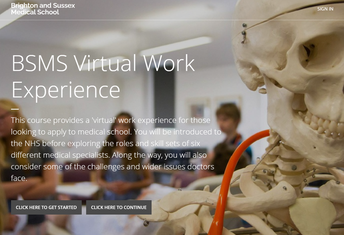- Home
- Departments
-
Who's Who
- Structure for DERI
- Senior Team
- Business Support Services Team
- Undergraduate Medical Education Team
- Clinical Activity Support Team
- Library and Knowledge Services Team
- Organisational Development Team
- Postgraduate Medical Education Team
- Practice Education Facilitation Team
- Placement Hub Team
- Work Based Education Team
- ELHT Staff Uniforms >
- Education Resources
- News
- ELHT
- DERI Plans and Strategies
The personal statement is your opportunity to tell your chosen universities why you would like to study medicine, and explain what skills and experience you possess which would make you a good doctor.
Remember that your personal statement should be individual to you rather than a series of cliches. The personal statement is the same for each course you apply for, so avoid mentioning any universities by name.
Personal Statements
In your personal statement, you should:
Remember that your personal statement should be individual to you rather than a series of cliches. The personal statement is the same for each course you apply for, so avoid mentioning any universities by name.
Personal Statements
In your personal statement, you should:
- Tell the reader why you are applying – include your motivation to study medicine, as well as what interests you about the subject
- Explain what makes you suitable for a career in medicine – this could be relevant experience, skills, or achievements you have gained from education, work, or other activities
- Reflect on your work experience and what you learnt about yourself or the profession
- Talk about any current affairs in medicine or healthcare which you have heard about, explaining what you found interesting and why
- Mention any other higher education, outreach activities you may have attended, explaining what you found interesting and why
- Include some information about what you like to do in your spare time and explain how this has developed your skills
- If there are any personal circumstances which have affected your educational performance or qualification choices, outline them in your personal statement.
Skills and attributes of an ideal candidate to medicine:
- Motivation to study medicine and genuine interest in the medical profession
- Insight into your own strengths and weaknesses
- The ability to reflect on your own work
- Personal organisation
- Academic ability
- Problem solving
- Dealing with uncertainty
- Manage risk and deal effectively with problems
- Ability to take responsibility for your own actions
- Conscientiousness
- Insight into your own health
- Effective communication, including reading, writing, listening and speaking
- Teamwork
- Ability to treat people with respect
- Resilience and the ability to deal with difficult situations
- Empathy and the ability to care for others
- Honesty
Admissions tests
Most medical schools use an admissions test as part of their entry requirements. Medical schools each state on their websites which test they use. You might sit different combinations of these tests according to the medical schools you intend to include in your application. You can only sit each of the admission tests once in each application cycle. Results are automatically delivered to the schools you have applied for.
UCAT The majority of medical schools use the University Clinical Aptitude Test or UCAT (formerly UKCAT). It is a computer-based test. You can find a full list of medical schools on the UCAT website www.ucat.ac.uk/.
What it tests: Generic skills in problem solving and critical thinking, Scientific Knowledge and Application.
BMAT
Some medical schools use the Biomedical Admissions Test or BMAT. You can find a full list of medical schools on the BMAT website. Usually BMAT offer two test dates, in September and November, Previously the BMAT was a pen and paper assessment but in 2020 it was computer-based.
What does it test: verbal, quantitative and abstract reasoning, as well as decision analysis and situational judgement.
Bursaries for admissions tests
Both the UCAT and BMAT offer bursaries to cover test fees for applicants. This takes the form of a bursary voucher before the assessment or reimbursement. You will need to meet specific criteria to be eligible for these bursaries, see the links below.
UCAT bursary
BMAT bursary
Take a look at the pre-recorded live event on Medicine personal statements and admission tests. The recording will include information and tips on how to write your personal statements and everything you need to know about admission tests - BCAT and UCAT.
|
What can you do to help build the knowledge and skills required to strengthen your application? Click on the image below for tips and resources.
|
Brighton and Sussex Medical School virtual work experience. Click on the image below to apply.
|
Education, Research and Innovation
Working Together, Learning Together
Working Together, Learning Together
- Home
- Departments
-
Who's Who
- Structure for DERI
- Senior Team
- Business Support Services Team
- Undergraduate Medical Education Team
- Clinical Activity Support Team
- Library and Knowledge Services Team
- Organisational Development Team
- Postgraduate Medical Education Team
- Practice Education Facilitation Team
- Placement Hub Team
- Work Based Education Team
- ELHT Staff Uniforms >
- Education Resources
- News
- ELHT
- DERI Plans and Strategies










